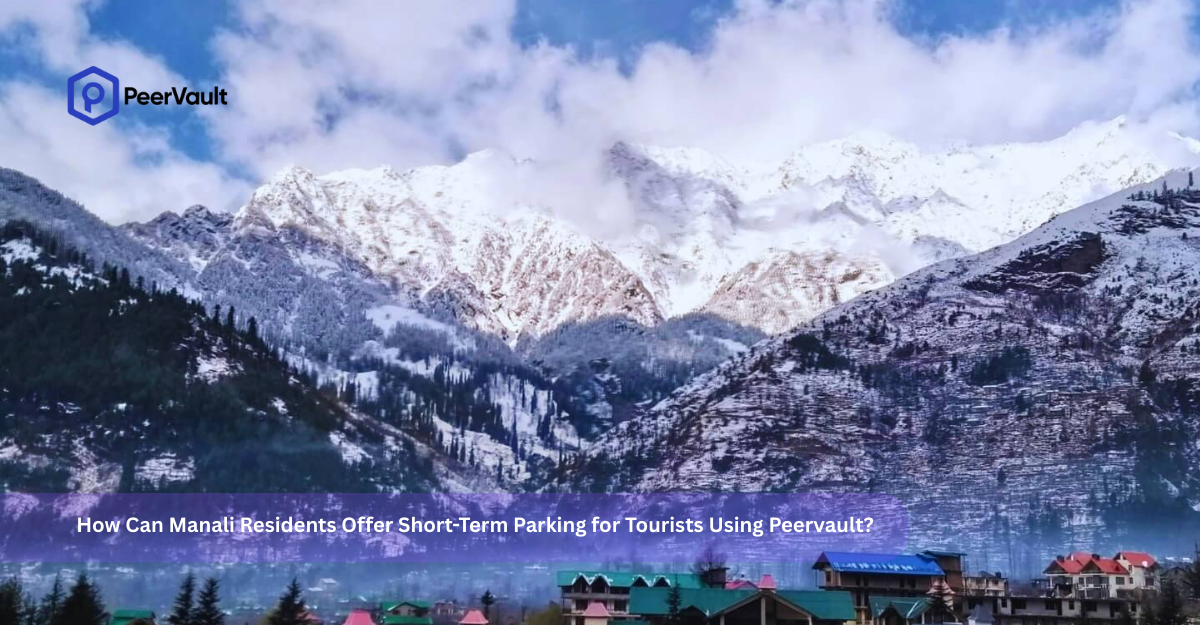How Does P2P Storage Work in Hyderabad and How Can You Benefit from It?

Space is both valuable and limited. While many homes, shops, and garages have corners that go unused, countless students, frequent movers, and small businesses struggle to find affordable, short-term storage. This imbalance has created the perfect opportunity for an innovative solution: peer-to-peer (P2P) storage.
P2P storage works on a simple idea: connect people who have extra space with those who need it. Much like how Airbnb turned spare bedrooms into guest accommodations, P2P storage turns unused rooms, lofts, basements, and even empty shelves into secure storage spots. Local residents, known as “hosts,” list their available space on a platform. Renters can then book it for as little or as long as they need whether it’s for a few boxes during a house shift, or long-term storage of seasonal items.
The process is fully digital, with bookings handled online and payments made through secure systems no need for cash. Many platforms also offer basic insurance, identity verification, and customer support, giving users peace of mind.
For a city like Hyderabad where demand for flexible solutions is growing, P2P storage offers a fresh, practical alternative to costly commercial warehouse or rigid storage contracts. It benefits both sides: hosts earn passive income from unused space, and renters enjoy affordable, nearby storage on their terms.
This article explores how P2P storage works in Hyderabad, what makes it appealing, who can benefit from it, and what to consider before booking. Whether you’re a student heading home for the summer or a business owner managing excess inventory, P2P storage might be the space-saving answer you didn’t know you needed.
The Basics: How P2P Storage Works
1. Search & Compare – Open a platform such as Stoorez or PeerVault and type your location (e.g., “Gachibowli” or “Charminar”). A map shows garages, spare rooms, shop mezzanines even covered parking spots.
2. Instant Booking – Filter by size, price, CCTV, or 24‑hour access, then click Book. Payments stay in escrow until move‑in.
3. Verified Handover – Meet the host, sign a digital checklist, lock the space (often with your own padlock or a platform‑issued smart lock).
4. Flexible Access – Need your cricket kit at 7 a.m.? Arrange a one‑time code or schedule with the host.
5. Insurance & Support – Most platforms include coverage up to ₹1 lakh and live chat help.
Why It’s Gaining Ground in Hyderabad
Feature | P2P Storage | Traditional Warehouse |
Price | Set by local hosts; often 30‑50 % lower | Fixed corporate tariffs |
Minimum Tenure | From 24 hours | 1–3 months typical |
Locations | Hundreds of micro‑sites near homes, metro stops, tourist hubs | Few large depots on city fringes |
Human Touch | Direct chat with host, local tips | Formal desk service |
Scalability for Businesses | Add/drop racks as inventory fluctuates | Long leases, fixed square footage |
Result? Students, expats, e‑commerce sellers, and tourists save money and time, while hosts earn passive income an estimated ₹4,000 – ₹12,000 per room each month.
Real‑World Use Cases
- Tourists: Store luggage near Charminar for a day trip instead of hauling suitcases.
- Start‑ups: Park surplus inventory in Jubilee Hills until the next flash‑sale.
- Relocating Families: Keep furniture safe for two weeks between leases.
- Bike Enthusiasts: Secure a covered parking bay during monsoon.
Key Benefits at a Glance
- Affordability – No hefty deposits; pay only for the days you use.
- Flexibility – Upsize, downsize, or move to another host with zero penalty.
- Proximity – Sites pop up in Banjara Hills, Hitec City, even near metro exits.
- Security First – Background‑checked hosts, CCTV, tamper‑evident seals.
- Sustainability – Re‑using idle urban space cuts demand for new concrete warehouses.
Points to Check Before You Book
- Insurance Cap – Know the coverage limit for high‑value items.
- Access Hours – Some hosts allow 24/7, others prefer daylight visits.
- Prohibited Items – No perishables, flammables, or restricted goods.
- Photo Inventory – Take time stamped pictures during drop‑off.
- Platform Support – Keep the chat thread inside the app for dispute protection.
How to Become a Host
1. Measure available space (min. 10 sq ft).
2. Upload photos, set rules (e.g., “no chemicals”), choose price.
3. Complete ID & address verification.
4. Approve bookings and earn monthly payouts straight to your bank.
10 Frequently Asked Questions About P2P Storage in Hyderabad
1. Is P2P storage safe?
Yes, most platforms ensure security by verifying hosts, offering secure access, and allowing user reviews. Still, always check the host’s profile and security features.
2. What can I store?
You can store books, clothes, luggage, electronics, office supplies, or household items. Avoid storing perishables, chemicals, or illegal goods.
3. How do I find a nearby storage spot?
Use the map feature on P2P storage platforms to filter spaces by your preferred location in Hyderabad.
4. Is it cheaper than traditional storage?
Generally, yes. Since you’re renting space from individuals, costs are often lower than commercial storage facilities.
5. Do I need to sign a contract?
Most platforms use digital agreements that outline terms, duration, and responsibilities for both parties.
6. Can I access my items anytime?
Access depends on the host’s policy. Some allow flexible access, while others may have specific time windows.
7. What happens if something gets damaged?
Some platforms offer insurance or damage protection. Always read the terms before booking.
8. Do I need to show ID to use the service?
Yes, identity verification is usually required to ensure safety and transparency.
9. Can I rent out my space as a host?
Absolutely. If you have extra space, you can register as a host and earn money.
10. Which areas in Hyderabad have the most listings?
Popular zones include Gachibowli, Madhapur, Kondapur, Begumpet, Jubilee Hills, and Ameerpet.
Final Thoughts
Peer-to-peer (P2P) storage is changing the way Hyderabad thinks about space. In a city known for its innovation and resourcefulness, this model blends convenience, flexibility, and local collaboration to solve real-world storage problems. Instead of turning to large commercial warehouses, residents can now look within their own communities to find safe, nearby, and cost-effective storage solutions.
Whether you’re a student heading home for break, a traveler trying to lighten your load, or a small business managing inventory overflow, P2P storage offers an alternative that adapts to your needs. It’s not just about saving money, it’s about creating smarter, more meaningful connections in the process.
Here’s what makes it work:
- Accessible locations across the city
- Flexible rental durations to suit short- or long-term needs
- Affordable pricing compared to traditional options
- Supportive local hosts who open up unused space
- Security features provided by trusted platforms
This isn’t just a clever side gig for hosts, it’s a growing network that reflects Hyderabad’s spirit of shared growth and innovation. It’s about making the most of what’s already there and building a system where both hosts and users benefit.
So the next time you’re running out of room, don’t rush to pack everything into your car or pay for a distant locker. Take a moment to explore what’s available right around the corner. That empty garage down the street or unused storeroom in your neighborhood could be exactly what you need.
With P2P storage, space isn’t just found, it’s shared. And in a city like Hyderabad, sharing space means building stronger, smarter communities.
Looking for Assistance? Contact Us
Popular Posts






